The Story of William Tell
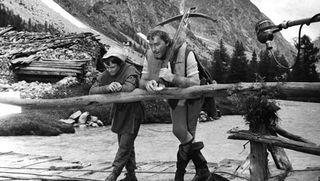
The victims: Errol Flynn, Bruce Cabot, Waltraut Haas, Jack Cardiff (director)
The gist: Blacksmith shoots apple placed atop his son's head and, naturally, becomes Switzerland's greatest hero.
The death blow: Once the biggest name in Hollywood, Errol Flynn was in dire need of a hit by 1953. He sank $500,000 of his own fortune into William Tell , securing further financing from an Italian nobleman, Count Fossataro. With a third of the film shot, it emerged that Fossataro was a fraud. Repo men appeared on set and cameras were auctioned to pay off the productions debt.
Were we denied or saved? If it would have ensured Flynn didn't go on to make Cuban Rebel Girls, it would have been completely worthwhile.
My Best Friend's Birthday
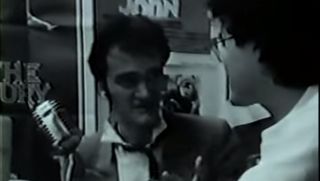
The victims: Craig Hamann, Quentin Tarantino (director/star)
The gist: Mickey (Hamann) is devastated when his girl leaves him on his birthday. Determined to cheer his best friend up, Clarence (Tarantino) vows to show Mickey the best birthday ever.
The death blow: In 1986, Tarantino was an LA video-store worker who dedicated much of his spare time to making this, his first feature film. Unfortunately, the first batch of film was completely out of sync and a later reel was destroyed in a lab fire. Tarantino redirected his efforts towards acting and screenwriting; he wrote True Romance the following year.
Were we denied or saved? QT told a documentary crew he finds the film pretty embarrassing, and since he's pretty hard to embarrass, we're sure this would have been a camp classic.
I, Claudius
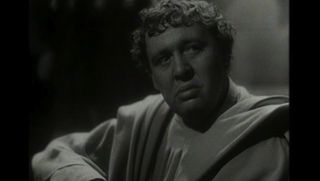
The victims: Charles Laughton, Flora Robson, Merle Oberon, Josef von Sternberg (director).
The gist: In his twilight years, the Emperor Claudius (Laughton) reflects on a life lived in a Rome that was every bit as grand as it was deceitful.
The death blow: Josef von Sternberg hated Charles Laughton. He became so desperate to quit the picture that, when Laughton's co-star Merle Oberon received superficial wounds in a road accident, he exaggerated the injuries to producer Alexander Korda and walked out, forcing the studio to abandon the half-finished film.
Were we denied or saved? Despite Laughton's reservations, the I, Claudius fragments that appear on the documentary The Epic that Never Was suggest it would have been one of the great films of the 30s.
Mata Hari
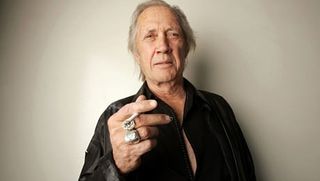
The victims: Calista Carradine, David Carradine (director)
The gist: In the Netherlands, a girl is born, grows to maturity and becomes the infamous German spy of World War One legend. In glorious real time!
The death blow: The plan was for David Carradine to shoot footage every year to capture his daughter, Calista, maturing. Designed to span 20 years, Mata Hari ought to have hit screens during the summer of 1998. A style of filmmaking adopted by Richard Linklater decades later with Boyhood.
Were we denied or saved? Definitely denied. It's an incredible concept that would have made a groundbreaking film that would have served as a fine legacy to Carradine.
Superman: Flyby

The victims: J.J. Abrams (writer), McG (director)
The gist: Superman is sent to Earth after a Kryptonian civil war between his father Jor-El and his uncle Kata-Zor. Supes joins forces with Lois Lane to thwart one of Lex Luthor's dastardly schemes when his cousins descend upon the planet to cause more chaos.
The death blow: The skyrocketing budget concerned studio execs, who still championed to have the movie shot in Australia, which would have seen those costs rise even further. After numerous struggles, involving McG's fear of flying, and certain elements of Abrams' script considered too ambitious Warner Bros. put the project on hold.
Were we denied or saved? That depends on how much you like Bryan Singer's Superman Returns, the less boisterous alternate that came later.
Revenge of the Jedi

The victims: David Cronenberg, David Lynch (directors)
The gist: The Empire launches a full scale attack on the Rebels.
The death blow: "You're really restricted by the format that's been established," Cronenberg said recently. "So for a really inventive or innovative director, that's being put in a straitjacket. And the visual style has been established and the characters have been cast - I mean, you're not involved in casting the leads, which is of course, for a director, a hugely important thing." Lynch flat out declined so he could shoot Dune.
Were we denied or saved? Both directors possess distinct filmmaking styles, each erring on the darker side of entertainment. It's tough to imagine the biggest sci-fi franchise in the world branded with Lynch's esoteric plotting or Cronenberg's then-affection for body horror.
Ronnie Rocket

The victims: Dexter Fletcher, David Lynch (writer-director)
The gist: A detective whose talent for standing one leg enables him to enter an alternate dimension, is chased by shady chaps called Donut Men who harness the power of electricity.
The death blow: Lynch dabbled with the film in-between his other major projects, and shopped it to a few studios who were disinterested in its illogical narrative and bizarre characterisations. Never officially laid to rest it's remained in hibernation after a repeated attempts to raise funding.
Were we denied or saved? There's a chance this will get saved, as Lynch said in 2012"theres always something [about the screenplay] I haven't figured out yet. I want to make it; I love that world.
The Other Side Of The Wind
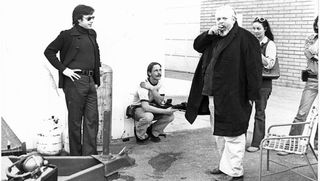
The victims: John Huston, Peter Bogdanovich, Orson Welles (director)
The gist: An ageing director (Huston) embarks on an ambitious project. So, in no way autobiographical then.
The death blow: In his search for international backers, Welles wound up borrowing money from the brother-in-law of the Shah of Iran. It must have seemed like a smart move at the time, but the upshot was he lost his rights to work on the picture following 1979s Islamic Revolution. The film became the property of the Ayatollah Khomeini who, hardly being renowned as a movie fan, declined to release the footage.
Were we denied or saved? Its an incredible film, comments the films star Peter Bogdanovich. Its quite unlike anything anyone had attempted before.
Batman: Year One
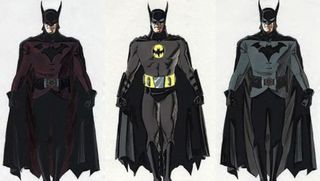
The victims: Frank Miller (writer), Darren Aronofsky (writer-director)
The gist: After the death of his parents - which hasn't been immortalised on-screen enough - a young Bruce Wayne is taken in by a mechanic. Under his tutelage Bruce watches life unfold in the grim east end of Gotham.
The death blow: "Toss out everything you can imagine about Batman! Everything! Were starting completely anew," Aronofsky said while developing the project with comic scribe Frank Miller. Starting anew wasn't exactly what Warner had in mind, and they backed out.
Were we denied or saved? My pitch was Death Wish or The French Connection meets Batman, " said Aronofsky. "In Year One, Gordon was kind of like Serpico, and Batman was kind of like Travis Bickle." Denied.
Napoleon
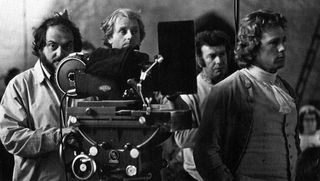
The victims: Stanley Kubrick (director), David Hemmings, Audrey Hepburn
The gist: Kubrick’s Napoleon was intended to be both a character study and an epic covering the man’s early life in Paris, his experiences as a protégé of various affluent families and his genius.
The death blow: In his quest to find out every single detail of Napoleon’s life through extensive and meticulous research, Kubrick somewhat fell down the rabbit hole. By the time he felt ready to start making the movie, the interested studios (which included MGM and United Artists) had got bored and moved on.
After 2001: A Space Odyssey, Kubrick tried to pitch the movie again, but the studios believed it would cost too much and Kubrick, unwilling to compromise his vision, decided to walk away.
Saved or denied: Denied - it’s Kubrick. Plus, after reading Kubrick’s 147-page draft from 1969, we reckon this could have been quite the epic.

